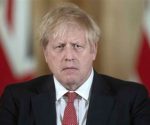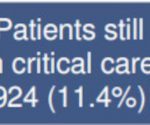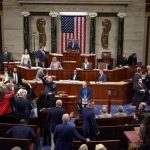BBC “silent weapon” damaged and vulnerable to increasing refusal to pay licence fee
The people at the BBC are worried; it said so in a National Audit Office document entitled TV Licence Fee Collection; Report by the Comptroller and Auditor General presented to the BBC Trust Value for Money Committee. The reader, like the author certainly did, might have missed it when it was released in January 2017. Looking at it now is timely, as the new year is around the corner, and interested “quiet war” analysts might want to keep a look out for an update. It is true that a House of Commons Library briefing paper, published in October just gone, contained some 2016/17 figures taken from the 2017 BBC Annual Report and Accounts – which does not, apparently, make mention of licence fee collection – and these will be referred to occasionally out of interest. The January 2017 report’s most up to date figures, on the other hand, are for 2015/16, but these appear to be the most complete we have and they’ll do for our purposes. As such, the TV Licence Fee Collection report, unless otherwise stated, will provide the source material for the data and quotations that follow in the body of this article.
First of all, the bad news. In 2015/16 the BBC, or rather Capita, which has the contract to do it, collected TV licence fee to the tune of £3.74bn. The message needs to be hammered home once and for all to an insouciant British public: this staggering amount has been levied on what is essentially a shakedown – as explained at FBEL previously (see here – and note, for TV Licensing Company, read Capita).
This treasure is fuel and ammunition for the UK Government’s principal media “silent weapon” which propagandises to the British as if they were a people occupied in a war: the BBC. If the reader still pays the TV licence, and is already feeling sheepish, then a deeper sense of ignominy is sure to follow. The figure for 2016/17 saw an increase in licence fee plunder to £3.8bn, which could mean anything from £3.75bn to £3.79; whichever the figure, it means the licence fee makes for consistent income. A good job too, because according to the 2016/17 statistics, 76.4% of the BBC’s entire income comes from licence fee takings. It really is true that anyone who pays the licence fee pays for the BBCs prolific and persistently behaviour-programming output.
The reader might not be aware of this, but 17% of the BBC’s licence fee booty is not from the sale of TV licenses. It is, in fact, awarded to the Corporation as a grant from the DWP to subsidise free licences for the over-75s. As far as the author can make out, that’s £650 million in tax-payers money donated directly to the BBC every year. Britons truly are thumb-sucking idiots. And it doesn’t end there. This is incidental to the licence fee collection report which is the focus of this article, but it is relevant. Every year the BBC purchases just over half a million pounds-worth of newspapers: that’s nearly 9000 copies, per week, of all the national titles, so no one can use the excuse that this purchasing is for reviewing the headlines each night on rolling news. The Daily Mail, where this data is gleaned from, grumbles about the fact that the Guardian gets a clear £40,000 per year ahead of any other title, and is predictable in its treatment of the story, but we shouldn’t fail to notice that the Times, the Telegraph, and the Financial Times are all in the £90-£100,000 bracket (the Mail, which comes next, gets £42,000 a year), and conclude that what is really going on here is the subsidisation of the political-spectrum-branded propaganda outlets by which the UK government’s silent weapons system discombobulates the public with the left-right paradigm. The TV licence is a comprehensive fleecing of the British to pay for their enslavement.
Before the positive intelligence is examined, an essential note on the terminology. The BBC calls people who don’t pay the TV licence fee “evaders and delayers”. Because a definition could not be found, we have to presume that “delayers” are people who might pay up after being pursued. Perhaps by seeing these naming conventions we are having an insight into the mathematical gaming scheme that the BBC has for optimising its licence fee collection. At the root of it all, however, the Corporation thinks of the two types as the same in one vital respect: they “should have a TV licence but do not”.
The reader should allow himself a moment to be astonished. Yet again, here is the presumption of guilt that was written about extensively in the FBEL article linked to above. This loaded language belongs to an overlord mentality whereby a peasant is guilty purely because he is on the land of the despot and not being a slave. The UK Government is a collective mind with the same mentality. Public money paid gangsterism is rampant.
Now, at last, for the good news. The rate of “evasion” rose in 2015/16 to somewhere between 6.2% and 7.2% (that would be a percentage of the 95% of all households in Britain which the BBC thinks are licensable). Previously, it had been steady at between 5 and 6 percent from 2010/11 to 2014/15. The sudden increase is being blamed on a change in the way the number of TV owning households is reckoned (by the Broadcasters’ Audience Research Board (BARB)). The Parliament briefing document doesn’t have the newest figures, but hopefully they will make interesting reading when they do appear – surely poor old BARB cannot get the blame every year. There is a clue as to what to expect, and we’ll arrive at that by and by. The BBC says that the extra 1% in “evasion” is worth £40.5 million in revenue lost to them. Moreover, it reckons that all the “evasion” [for 2015/16] represents £251-£291 million in lost revenue. War is about denying the enemy territory.
The next cheering statistic is that there was an 18% reduction in the prosecution of TV licence evasion between 2010/11 to 2015/16. To rephrase, in 2015/16, TV licensing caught 18% less people than they did 5 years earlier, and this is despite the fact that the number of enforcement visits increased from 2.7 million to 3 million. And April 2016, the Financial Times had a snippet of information to make this look even worse. It told of an MPs report that claimed “[Capita] staff used intimidatory tactics to pursue non-payers”. The “cross-party Commons public accounts committee” which this claim comes from hasn’t been consulted for this article, but the allegation rings anecdotally true. It all adds up to a huge failure in anyone’s book: more, and heavy visits, but less prevention of “evasion”. It’s no wonder that the BBC had this to say (emphasis added):
The BBC and Capita explain this performance as, in part, being caused by challenges recruiting and retaining field staff, and, in part, due to visits being focused on a more challenging group of delayers and evaders than in the past. While there is an annual process to develop enforcement and sales initiatives, this has not to date formed part of a clear, long-term strategic approach.
The key message an FBEL audience can take from this is that the BBC has come up against the resistance, and its goons don’t like it. Plus, the Corporation doesn’t know what to do about it, as we shall see. Despite this, the BBC does claim a victory, although it is clearly pyrrhic, when it says that its costs in collecting revenue has fallen in real terms by 25% from 2010/11. This would be ok if the results had improved. Spending less money and even maintaining a standard would demonstrate more efficiency. However, when the BBC is spending less money and the results become worse, the correlation is clear. Unfortunately, for the BBC, it will have less money to spend in the future.
Spending on licence fee collection comes in the main through a contract with Capita and another company called Proximity that does marketing and printing services. Capita’s job is to collect arrears and enforce licence fee collection. Furthermore, it looks like, on the award of the contract in 2012,…
Capita was supposed to modernise data and technology systems through a transition programme. Despite certain improvements, this part of the contract has faced major difficulties, with the BBC paying Capita only £22.9 million out of a £50.7 million budget.
There was trouble at the mill, but can we discern its nature? Read the following carefully – emphasis added :
Capita has made improvements through the transition programme, including restructuring contact centres, updating the TV Licensing website, and upgrading handheld units for field staff. But the programme failed to update legacy ICT systems by a target date of July 2016. Problems emerged over time, with the BBC aware of the need to replan certain aspects of the programme’s scope and milestones from 2012-13. The programme has now been stopped. As a result, it is currently more resource-intensive than intended to support TV Licensing’s understanding of customer behaviour and the realisation of efficiencies has been delayed as the BBC reconsiders its approach.
Software is notoriously susceptible to requirements creep, where it becomes apparent that new functionality is desirable, not always necessary, well down the development calendar. Problems can also arise from overconfidence in the skills of quasi-intellectual, idiot-savant software developers. It has been known to happen that when a project is too far over the delivery date, then it just gets dropped; a brief search was conducted, but nothing could be found to elaborate on what did happen in this case. Nevertheless, translating the last sentence in the above paragraph, it looks as though the new ICT would have had something to do with the “understanding of customer’s behaviour”, and the absence of the technology has produced circumstances whereby the legacy platform for plugging into a prospective licence fee customer’s input jack (see the FBEL article “Silent Weapons for Quiet Wars”; Part One: “Inductance” for economic dominance) to manipulate the desired outcome – the purchase of a licence fee – is just not clever enough for the purpose. Read on:
The BBC has had less success delivering its aim to reduce licence fee evasion. The evasion rate is higher than was previously thought and it is now unlikely that the aspiration to reduce it to 3.95% [by 2020] will be achieved. In this context, catching fewer evaders than previously is worrying. Furthermore, due to the incomplete transition programme, the BBC’s optimisation of efficiency and effectiveness has been delayed.
In short, the BBC is facing a new hard core type of “evader” – and we know, don’t we reader, that this type is not paying, on principle, to deny the State capacity to wage psychological warfare – and it doesn’t have the system capability to game theory to produce compliance; worse still, it doesn’t foresee being able to have it in the near future.
As stated right at the top, the BBC is worried. Instead of mining deeper for an “evader” harvest, it has probably hit a bedrock level after which there is no more income to be had – a level that is going to rise as people increasingly learn about how corporate-media, the BBC in particular, is weaponised and used against them. This will increasingly represent lost revenue for the Corporation. As it is, the current accountable loss is already devastating because there is clearly a sense that the BBC had been counting on it. From 2020, the over-75 grant will not be available, and the chief strategy to cover the shortcomings appeared to be to scoop up the missing “evader” dollar. As it is, the BBC is now talking about asking over-75s to make voluntary contributions come the transition. There will be trouble ahead, and to prove it, the FT piece introduced above, quotes the sage council of the National Union of Journalists (NUJ)…
It was likely the BBC would have to take “radical options” including job cuts to meet its budget targets.
“This next charter period [2017-2027] looks to be one of the toughest ever,” said Sue Harris, the NUJ’s broadcasting organiser.
The BBC, like Goliath, has a spot where every little man can pitch a stone at high speed out of a sling. The simple weapon is available to everyone – it is refusing to pay the TV licence – and ultimately it is going to bring the parasitic, demoralisation-spawning, enslaving, colossal tool of the World State crashing down.


















